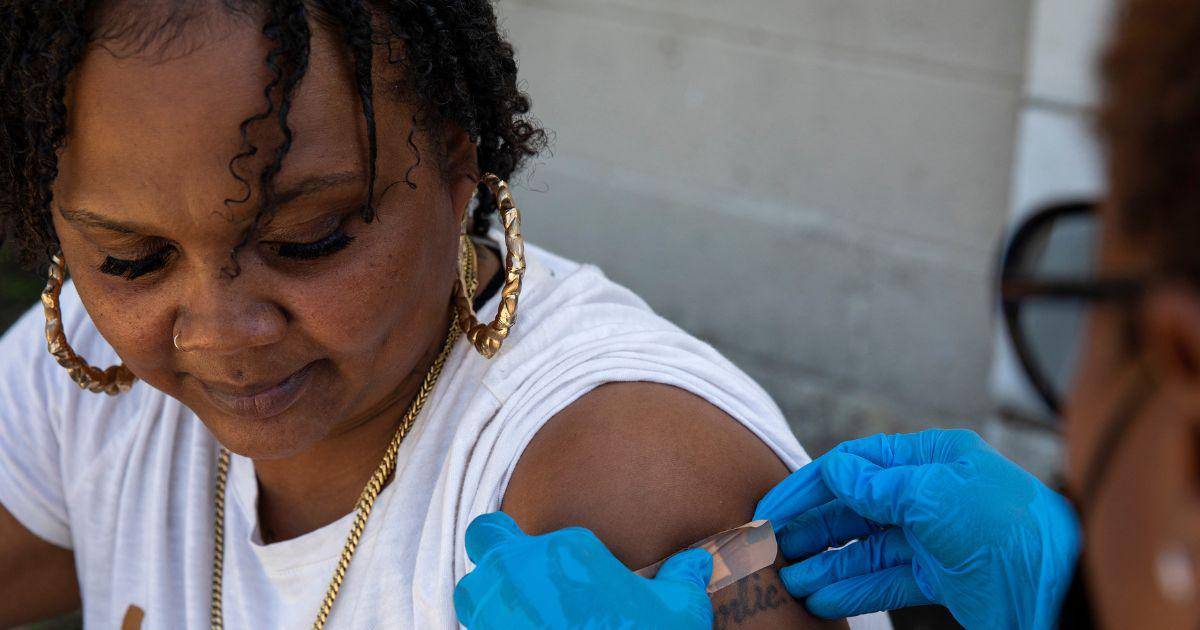NEW YORK, UNITED STATES.- The increase in the number of covid-19 cases and the proximity of the new school year make many people wonder when they should get their next dose of the booster vaccine. The short answer, according to experts, is still no. You’ll be much better if you wait another month or two.
In June, a Food and Drug Administration (FDA) advisory group recommended that the next covid vaccine formulation focus on the omicron XBB.1.5 variant.
Pfizer, Moderna and Novavax are now working to update, test and mass-produce their vaccines, which will then have to be officially licensed by the FDA. Experts estimate that the vaccines will be available to the public in late September or early October.
“For most people right now, it seems to me that waiting makes more sense,” said Paul Sax, clinical director of the division of infectious diseases at Brigham and Women’s Hospital.
There are two main reasons to wait for the updated vaccine. First of all, it will be more suitable for the variants that are currently in circulation.
Most of the coronavirus variants infecting people today are descendants of or related to XBB.1.5, so the decision to vaccinate against that variant “was the best thing that could be imagined at the moment.” said Trevor Bedford, a professor in the Division of Vaccines and Infectious Diseases at the Fred Hutchinson Cancer Research Center.
The vaccine will most likely also provide some protection against EG.5, which has recently become the dominant variant in the United States, accounting for about 17 percent of current cases.
EG.5 is descended from another XBB variant and has some additional mutations, so the antibodies produced by the updated vaccine may not be as effective against it. But the new booster is still more suitable for EG.5 than last year’s booster, which targeted both the original covid variant and the BA.5 omicron variant, neither of which appear to be in circulation anymore.
David Boulware, a professor of medicine specializing in infectious diseases at the University of Minnesota Medical School, added that since the new vaccine is a better fit for current variants, he is “somewhat optimistic” that it will help prevent no only serious illness, but also infection.
“Once it is reinforced with the variant that is closest to the one that is actually circulating,” chances are that some protection against infection will be restored, he said.
The second reason to wait a month or two for the new vaccine is that it will increase the chances that your defenses against the virus will be strongest when cases are expected to peak, historically between December and February. Antibodies decline over time, and protection is greatest during the first three months after infection or vaccination.
“The number of cases is increasing now, but it is not at exceptionally high levels,” Sax noted. “However, I can’t imagine they won’t go up again in November, December or January, as they have every year for the last three years.”
If you’ve recently been vaccinated against COVID, experts suggest waiting a few more months before receiving the new vaccine. Your antibodies are already elevated due to the infection, so the vaccine won’t provide you with much additional benefit during that time.
In case you need a little more motivation to get that new booster shot, vaccination is the only proven way to shorten a COVID case, Boulware explained. In a study published last year, it was revealed that people who contracted COVID within six months of vaccination “had less severe illness and a shorter duration of illness.”
If you’re worried about contracting COVID in the meantime, use the behavioral protections you’ve employed throughout the pandemic: avoid large crowds; wear a high-quality, well-fitting N95, KN95 or KF94 mask when in indoor public places, and keep rooms well ventilated – even opening a window can help.
c.2023 The New York Times Company
Sign up to continue enjoying the best journalistic content
2023-08-11 22:46:00
#months #wait #booster #vaccine #covid19


